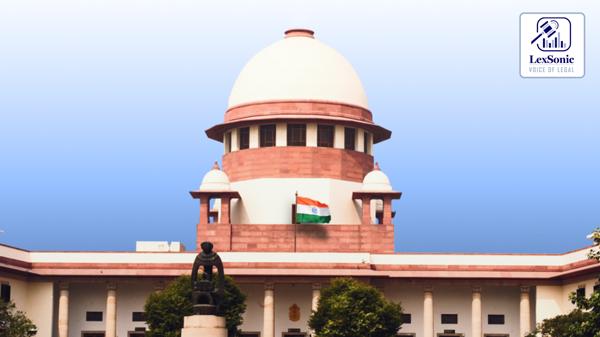Supreme Court Confirms Liberty, Overturns Allahabad High Court in Ashok Kumar's Case.
17 October 2025
Criminal Appeals & Suspension of Sentence >> Criminal Law
Supreme Court of India, on October 17, 2025, passed a crisp but important order in the case of Ashok Kumar v. The State of U.P. & Ors. (Criminal Appeal No. 4585 of 2025). The Bench consisting of the Hon'ble Mr. Justice Sanjay Karol and Hon'ble Mr. Justice Nongmeikapam Kotiswar Singh strongly upheld the grant of anticipatory bail to the appellant Ashok Kumar, reversing the prior restrictive direction of the Allahabad High Court.
Background and Interim Protection:
The appeal had been initiated from the order passed by the Allahabad High Court on July 28, 2025, in a Criminal Miscellaneous Anticipatory Bail Application. Opposing such an order, the appellant approached the Supreme Court through a Special Leave Petition (Criminal).

A key intervention was on September 8, 2025, when the Supreme Court made an interim order requiring that: "In case of arrest, the petitioner(s) shall be granted bail by the Investigating/arresting officer." This was a turning point, releasing the appellant from detention provisionally and subjecting him to conditions of good behavior and non-disruption of witnesses.
Reason for Final Confirmation:
Following the grant of leave to appeal and the hearing of counsel on both sides, the Supreme Court went on to dispose of the matter. The order granting leave to appeal and affirming bail was overwhelmingly based on the conduct of the appellant during the interim period.
The Court clearly noted its satisfaction that the terms of the interim order had been "fully complied with." Central to the final order were the specific findings:
- The appellant "has assisted in the course of the investigation."
- The appellant "has not intimidated or threatened any of the witnesses."
- The appellant has not attempted "to pervert the course of the investigation in any way."
These observations reiterate the maxim that obedience to judicial orders and not obstructing the investigation process are overriding concerns for an accused who is looking for the continuation of pre-arrest freedom. The Court, after recording the nature of the offense and the method of its commission, saw no bar to the confirmation of the already granted interim bail.
Stringent Conditions and Judicial Monitoring:
The Supreme Court in granting the leave to appeal made specific directives to the appellant:
- He has to keep on cooperating fully throughout the investigation and the subsequent trial hearings.
- He should not cause any unwanted adjournment that will cause delay in the proceedings.
In addition, a major judicial check was built into the order. The Supreme Court provided power to the Investigating Officer, Arresting Officer, or the Trial Court to take suitable remedial action, such as cancellation of bail, if they find that the trial or investigation is being stalled because of the appellant's actions. This clause makes sure that the grant of liberty is not abused for hampering the progress of the criminal justice system.
Conclusion:
By keeping aside the Allahabad High Court judgment and upholding the interim bail of September 8, 2025, the Supreme Court has again made it clear that freedom is the norm, and jail is the exception. Judgment supports the view that where an accused shows a clear and consistent desire to oblige judicial conditions and cooperates with the investigating machinery in every way possible, pre-arrest protection should be obtained to his benefit, always subject to rigorous observance of the law and court directions.
